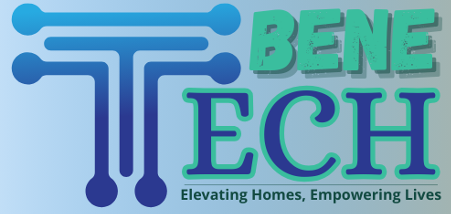The mental health crisis in the United States is severe, with 90% of people seeing it as ongoing. The need for new solutions is urgent. The mental health tech industry is growing, with a focus on using technology to help people.
Companies are now working with experts in mental health to create better technology. Investors want to see how these technologies help patients and save money. This change has opened up many new job opportunities in mental health tech.
If you’re interested in starting a career or looking for a new path, now is the time. The field of digital mental wellness is full of possibilities. It’s a great time to explore these opportunities.
Table of Contents
Key Takeaways
- The mental health technology industry is experiencing a second wave of development, with a focus on integrating clinical expertise and demonstrating patient benefits.
- There’s a shift towards mental health companies leveraging technology, creating a surge of opportunities in the field of mental health tech.
- The demand for innovative solutions to the mental health crisis is growing, with 90% of the public in the US believing there is an ongoing crisis.
- The transition of mental healthcare from a niche opportunity to a mainstream necessity has expanded the scope of remote mental health jobs.
- Exploring the diverse range of mental health tech jobs can help you launch a rewarding career in this rapidly evolving industry.
Understanding the Mental Health Tech Landscape
The mental health tech world is changing fast. It’s full of chances in psychology tech roles, behavioral health IT positions, and e-mental health job opportunities. New digital tools and technologies are changing how we help people with mental health issues.
Current Trends in Mental Health Technology
One big trend is digital therapeutics. These cost between $300 and $1,500 a year. They’re cheaper and more accessible than traditional therapy. We’re also seeing new tech like apps for therapy and digital tools for mental health support.
Key Technologies Shaping the Industry
New technologies are changing the mental health tech world. We have AI chatbots, virtual reality therapy, and data analytics. These tools help make care more personal and effective. They’re creating new e-mental health job opportunities and changing how we support mental health.
Importance of Mental Health in Society
Mental health is very important in our society. Studies show 50% of young adults and one-third of adults feel anxious often. With 60% of psychologists having no new patients, there’s a big need for mental health help. The rise of behavioral health IT positions and other tech roles is meeting this need.
| Statistic | Value |
|---|---|
| Tech professionals reporting burnout | 57% |
| Tech workers experiencing stress | 82% |
| Tech employees reporting anxiety symptoms | 83% |
| Tech workers reporting depression symptoms | 59% |
| Tech workers working more than 40 hours per week | 61% |
| Tech workers worried about losing their jobs | 42% |
| Tech workers comfortable discussing mental health at work | 34% |
The mental health tech field is dynamic and growing fast. It offers many psychology tech roles, behavioral health IT positions, and e-mental health job opportunities. By understanding the trends, technologies, and importance of mental health, we can explore the vast possibilities in this field. We can help transform mental health support.
Types of Mental Health Tech Jobs Available
The field of mental health technology offers many job opportunities. You can work in teletherapy, online counseling, app development, or data analysis. Each path has its own challenges and rewards.
Teletherapy and Online Counseling Roles
Teletherapy and online counseling are becoming more popular. Companies like Headspace Health and Cerebral are leading this trend. They need professionals to provide virtual therapy and counseling across the country.
Mental Health App Development Positions
Mental health apps are a growing field. Developers, designers, and product managers are needed. They create tools that help people with mental health issues and improve well-being.
Data Analysis and Research Opportunities
Companies like SilverCloud need data analysts and researchers. They study how digital mental health tools work. This involves designing tools, analyzing data, and finding ways to improve mental health tech.
The mental health tech field is changing fast. There’s a growing need for experts in telepsychiatry job openings, online counseling tech jobs, and virtual therapy IT roles. By exploring these options, you can help shape the future of mental healthcare and make a real difference.

Essential Skills for Mental Health Tech Careers
The field of mental health technology is growing fast. To succeed in mental health tech jobs, psychology tech roles, and behavioral health IT positions, you need a mix of skills. You’ll need technical know-how and soft skills to excel.
Technical Skills You Need
Knowing how to develop apps, analyze data, and use digital therapy platforms is key. You should be good at programming, managing databases, and designing user experiences. Keeping up with new tech like telehealth, mobile apps, and AI tools will help you stand out.
Soft Skills That Make a Difference
- Empathy: It’s vital to understand and connect with people facing mental health issues. Showing real compassion can make your work more effective.
- Communication: You need to explain complex ideas in simple terms. This skill helps you work well with both mental health experts and tech-savvy people.
- Problem-solving: Mental health tech jobs often require finding new solutions to problems. You’ll need to think critically, be creative, and adapt quickly.
Certifications and Qualifications to Consider
Having a degree in psychology, computer science, or a related field is a good start for mental health tech jobs. Getting certifications in mental health counseling, health informatics, or user experience design can also boost your career. Knowing the rules and licenses for mental health workers in different places is also important.
| Certification | Relevance | Offered By |
|---|---|---|
| Certified Mental Health Technician (CMHT) | Demonstrates expertise in providing care and support for individuals with mental health conditions | National Certified Counselor Board |
| Certified Health Informatics Professional (CHIP) | Validates knowledge in the intersection of healthcare and technology | Healthcare Information and Management Systems Society (HIMSS) |
| User Experience (UX) Certification | Enhances skills in designing user-centric digital experiences | Multiple providers, such as Nielsen Norman Group and Interaction Design Foundation |
By combining technical skills with soft skills, you can excel in the mental health tech jobs field. Keep learning and growing to stay ahead in this fast-changing industry.
How to Prepare for a Career in Mental Health Tech
Starting a career in mental health technology is both exciting and rewarding. To succeed, follow key steps. These include exploring educational options, gaining experience, and networking. This guide will help you on your journey to a dream job in digital mental wellness.
Education Pathways and Degree Options
There are different educational paths for mental health tech careers. Many have degrees in psychology, computer science, or digital health programs. Look into programs that mix mental health with tech skills, like a Bachelor’s in Informatics or a Master’s in Health Informatics.
These degrees are great for roles in app development, teletherapy, or data analysis. They provide a solid base for your career.
Gaining Relevant Experience
Getting hands-on experience is vital for success in mental health tech. Apply for internships at tech companies focused on mental health. You can work on product development, user experience, or data analysis.
Joining research projects can also boost your skills. You can do this through school or independent groups. It’s a great way to get industry exposure.
Networking in the Mental Health Tech Community
Networking is essential in the fast-changing mental health tech world. Join organizations like Out for Undergrad or attend conferences. This helps you meet others and stay updated on trends and jobs.
Being proactive in networking can lead to important connections. For example, sending targeted emails, like Matthew Tompkins did, can open doors to new opportunities.
With a solid education, experience, and a strong network, you’re set for a rewarding career in mental health tech.
Job Search Strategies for Mental Health Tech
Finding a job in the mental health tech field can seem tough. But, with the right approach, you can find your ideal job. Start by looking at job boards and company websites focused on mental health tech jobs. This includes telepsychiatry and online counseling tech jobs.
Best Job Boards to Explore
- MHT.com (Mental Health Tech Jobs)
- TelehealthCareers.com
- PsychCentral.com/jobs
- Glassdoor.com (search “mental health tech”)
Crafting a Compelling Resume and Cover Letter
Your resume and cover letter should show your skills and passion for mental health. Tailor them to match the job you want. Highlight your experience and how you can help the company.
Leveraging LinkedIn for Job Opportunities
LinkedIn is key for mental health tech jobs. Make your profile stand out, connect with others, and join groups. A study found a 14% rise in job applications in this field from November 2023 to March 2024.
Also, don’t miss out on networking events. They can help you find jobs and make connections. Being open to moving for a job, like Hafsa Hussaini did, can also open more doors.
The job hunt in mental health tech can be tough. But, by focusing on your mental health and using smart strategies, you can find the right job. This will start your rewarding career in this field.
Top Companies Hiring in Mental Health Tech
The mental health tech sector is booming. Many companies, from new startups to big names, are looking for skilled people. They want to help shape the future of digital mental wellness.
Notable Startups in Mental Health Technology
Startups like Nema Health, Appa Health, and Instride Health are changing the game. They were started by people who really get mental health. These companies focus on creating top-notch mental health app development careers and virtual therapy IT roles.
Established Companies Making an Impact
Big names like Headspace Health, Cerebral, and SilverCloud are also making a big difference. They use their knowledge and resources to help people with mental health issues. These companies are key players in the digital mental wellness occupations field.
Considerations for Company Culture and Values
When looking at jobs in mental health tech, think about the company culture and values. Look for places that value clinical knowledge, ethics, and have mental health experts in leadership. These companies usually do the most good and have a big impact.
| Company | Roles | Average Salary Range | Benefits |
|---|---|---|---|
| Northwell Health | Business Development Director (Health Systems) | $135,000 – $175,000 | Unlimited PTO, Robust medical/dental/vision, 401(k) with employer match, Mental health benefits, Life insurance, Disability insurance |
| Quartet | Various roles | Competitive | Equal opportunity employer, Complete benefits |
| innovaTel | Various roles | Competitive | Equal opportunity employer, Complete benefits |

Understanding Compensation and Benefits
Exploring mental health tech jobs, psychology tech roles, and behavioral health IT positions means looking at pay and benefits. Salaries vary based on experience, role, and location.
Salary Ranges for Different Roles
Mental Health Technicians earn between $31,150 and $59,990 a year, with an average of $19 an hour. The highest salaries are in California, District of Columbia, and Connecticut, reaching up to $64,820. Mental Health Technicians can expect a 9% job growth rate over the next decade.
Common Employee Benefits in the Industry
- Comprehensive health insurance coverage
- Employer-provided mental health support and resources
- Opportunities for professional development and continued education
- Generous paid time off and flexible work arrangements
- Retirement savings plans, such as 401(k) or pension contributions
Negotiating Your Job Offer Successfully
When negotiating a job offer in mental health tech, think beyond salary. Consider growth opportunities, the company’s commitment to mental health, and the benefits package. Show how your skills and knowledge can help the company succeed.
| Metric | Statistic |
|---|---|
| Untreated mental health issues cost organizations | $60,000 annually, totaling up to $105 billion a year nationwide |
| Workers reporting feeling burned out | 45%, nearly three times more likely to actively look for other job opportunities |
| Workers stating their jobs often cause stress | 33%, with major stress factors including workload, compensation, and understaffing |
| Employees unaware or only somewhat aware of mental health resources | 70% |
| Employees who do not feel comfortable using or inquiring about mental health benefits | 50% |
| Employees who stated their employer’s actions do not align with their words on mental health | 50% |
| HR professionals who reported their jobs have negatively impacted their mental health | 50% |
| HR professionals who wouldn’t recommend their field to someone already struggling with mental health issues | 52% |
Future of Mental Health Tech Jobs
The future of mental health tech jobs looks bright. New areas like AI-assisted therapy and virtual reality treatments are emerging. These roles blend clinical skills with tech innovation, promising steady growth.
Emerging Opportunities in the Field
Digital therapeutics are becoming part of clinical work. Mental health support is also reaching more people, including those who speak different languages. As demand for these services grows, experts in these technologies will be needed more than ever.
Predictions for Mental Health Tech Careers
Jobs in mental health are expected to grow a lot. Mental health counselors could see a 19% increase by 2033. Marriage and family therapists might see a 16% rise. Even counselors for specific issues like sexual assault could see a 14% growth.
How to Stay Relevant in a Rapidly Changing Industry
To succeed in mental health tech, keep learning and stay updated. Focus on both tech advancements and mental health research. By always looking to improve, you’ll stay relevant in this fast-paced field.
FAQ
What is the current state of the mental health technology industry?
What are the key trends and technologies shaping the mental health tech industry?
What is the current state of the mental health technology industry?
What are the key trends and technologies shaping the mental health tech industry?
FAQ
What is the current state of the mental health technology industry?
The mental health tech industry is growing after facing early hurdles. Now, companies focus on combining clinical knowledge with technology. Investors look for evidence that these tools help patients and save money.
There’s a shift towards tech being used for mental health, not the other way around.
What are the key trends and technologies shaping the mental health tech industry?
Trends include digital therapeutics, costing between 0 and
FAQ
What is the current state of the mental health technology industry?
The mental health tech industry is growing after facing early hurdles. Now, companies focus on combining clinical knowledge with technology. Investors look for evidence that these tools help patients and save money.
There’s a shift towards tech being used for mental health, not the other way around.
What are the key trends and technologies shaping the mental health tech industry?
Trends include digital therapeutics, costing between $300 and $1,500 yearly. Apps for cognitive behavioral therapy and single-session interventions on social media are key. Interactive digital tools are also important.
Half of young adults and one-third of all adults often feel anxious, showing the need for mental health tech.
What types of mental health tech jobs are available?
Mental health tech jobs are diverse and growing. Roles in teletherapy and online counseling are expanding. Companies like Headspace Health and Cerebral lead this field.
Mental health app development is also in demand. Data analysis and research roles are critical, with companies like SilverCloud needing experts to study digital interventions.
What essential skills are required for mental health tech careers?
Essential skills include technical and soft skills. Technical skills cover app development, data analysis, and understanding digital therapeutic platforms. Soft skills are empathy, communication, and translating clinical knowledge into tech solutions.
Certifications and qualifications may include degrees in psychology, computer science, or related fields.
How can I prepare for a career in mental health tech?
Preparing for a career in mental health tech involves education and experience. Degrees in psychology, computer science, or digital health programs are options. Gain experience through internships, research projects, or clinical work.
Networking is key, with opportunities through organizations like Out for Undergrad and professional conferences.
What job search strategies are effective for finding mental health tech roles?
Effective job search strategies include using specialized job boards and company career pages. Highlight technical skills and mental health understanding in your resume and cover letter. LinkedIn is valuable for job opportunities and networking, with events like those by Out for Undergrad.
What are some top companies hiring in the mental health tech industry?
Top companies include startups like Nema Health, Appa Health, and Instride Health. Established companies like Headspace Health, Cerebral, and SilverCloud also hire. Other employers include Raytheon, universities, and healthcare systems like Banner Health.
How does compensation and benefits work in the mental health tech industry?
Compensation varies by role and company. Research market rates for similar positions in tech and healthcare. Common benefits include health insurance, mental health support, and professional development opportunities.
What is the future outlook for mental health tech jobs?
The future of mental health tech jobs looks promising. Emerging areas include AI-assisted therapy, virtual reality treatments, and personalized digital interventions. The industry is expected to grow, with a focus on combining clinical expertise with technology.
To stay relevant, professionals should continuously learn about technological advancements and mental health research.
,500 yearly. Apps for cognitive behavioral therapy and single-session interventions on social media are key. Interactive digital tools are also important.
Half of young adults and one-third of all adults often feel anxious, showing the need for mental health tech.
What types of mental health tech jobs are available?
Mental health tech jobs are diverse and growing. Roles in teletherapy and online counseling are expanding. Companies like Headspace Health and Cerebral lead this field.
Mental health app development is also in demand. Data analysis and research roles are critical, with companies like SilverCloud needing experts to study digital interventions.
What essential skills are required for mental health tech careers?
Essential skills include technical and soft skills. Technical skills cover app development, data analysis, and understanding digital therapeutic platforms. Soft skills are empathy, communication, and translating clinical knowledge into tech solutions.
Certifications and qualifications may include degrees in psychology, computer science, or related fields.
How can I prepare for a career in mental health tech?
Preparing for a career in mental health tech involves education and experience. Degrees in psychology, computer science, or digital health programs are options. Gain experience through internships, research projects, or clinical work.
Networking is key, with opportunities through organizations like Out for Undergrad and professional conferences.
What job search strategies are effective for finding mental health tech roles?
Effective job search strategies include using specialized job boards and company career pages. Highlight technical skills and mental health understanding in your resume and cover letter. LinkedIn is valuable for job opportunities and networking, with events like those by Out for Undergrad.
What are some top companies hiring in the mental health tech industry?
Top companies include startups like Nema Health, Appa Health, and Instride Health. Established companies like Headspace Health, Cerebral, and SilverCloud also hire. Other employers include Raytheon, universities, and healthcare systems like Banner Health.
How does compensation and benefits work in the mental health tech industry?
Compensation varies by role and company. Research market rates for similar positions in tech and healthcare. Common benefits include health insurance, mental health support, and professional development opportunities.
What is the future outlook for mental health tech jobs?
The future of mental health tech jobs looks promising. Emerging areas include AI-assisted therapy, virtual reality treatments, and personalized digital interventions. The industry is expected to grow, with a focus on combining clinical expertise with technology.
To stay relevant, professionals should continuously learn about technological advancements and mental health research.

